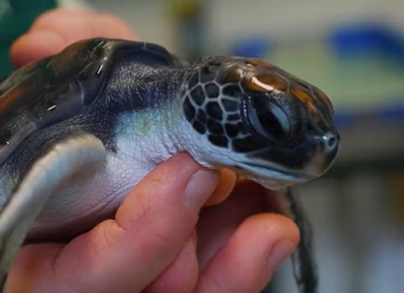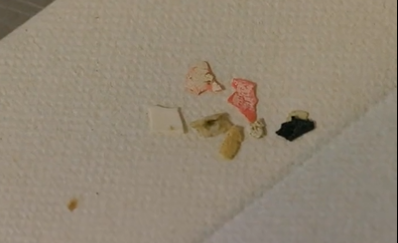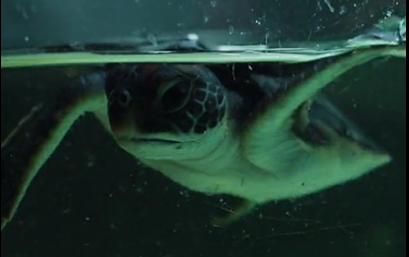Baby turtle ‘pooed pure plastic’ for six days after being rescued from Sydney beach
Infant green sea turtle on the road to recovery after ingesting extremely high levels of plastic

Your support helps us to tell the story
From reproductive rights to climate change to Big Tech, The Independent is on the ground when the story is developing. Whether it's investigating the financials of Elon Musk's pro-Trump PAC or producing our latest documentary, 'The A Word', which shines a light on the American women fighting for reproductive rights, we know how important it is to parse out the facts from the messaging.
At such a critical moment in US history, we need reporters on the ground. Your donation allows us to keep sending journalists to speak to both sides of the story.
The Independent is trusted by Americans across the entire political spectrum. And unlike many other quality news outlets, we choose not to lock Americans out of our reporting and analysis with paywalls. We believe quality journalism should be available to everyone, paid for by those who can afford it.
Your support makes all the difference.A baby green sea turtle rescued from a Sydney beach had consumed so many plastic fragments that it took six days for the hatchling to excrete it all out, according to a wildlife hospital.
The 127-gram male hatchling was found in a rock pool, lying on its back, Taronga Zoo said. Washed onto the beach by a swell, the turtle was brought into the sanctuary with a few injuries, including a missing back right flipper, another flipper had been chipped, and there was a hole in his shell.
The sanctuary cares for up to 80 turtles per year and veterinary nurse Sarah Male said the “majority” of injuries stemmed from ingesting plastics, and fishing lines.
When the baby turtle arrived at the wildlife hospital, he was in “fairly good physical condition, but when he started to defecate, he defecated six days of plastic. No faeces came out, just pure plastic”, Male said in a video posted to the soo’s Twitter account.
Seeking to uncover the extent of the problem, the hospital collected vials of the turtle’s poo each day. “We came up with six tiny vials full of all different sizes of plastics. Some of the plastic that did come out was really hard, which could have caused an obstruction. But this little guy – luck was on his side, and he excreted it all out”.

The turtle is now an inpatient at the hospital and is growing stronger by the day. “He’s now eating and defecating really well – no more plastics,” Male said. Eventually, the sanctuary plans to release him back into the waters surrounding Sydney, but preparing the tiny turtle could take up to two years. “We want to give him the best chance, so when he’s released he’s more than just… fish food”.
Plastic pollution in the ocean – including microplastics – is one of the biggest environmental threats, according to World Animal Protection. As well as fragments, like those the turtle had ingested, invisible microplastics seep into the water as bags and bottles break down. Once it enters an animal’s system, the toxic chemicals can increase the chances of disease and affect reproduction.

New rules in New South Wales, known as the Plastics Action Plan, aim to target the issue. From 1 June, all lightweight single-use plastic bags were banned, and from November, other single-use plastics, such as plastic straws, cutlery, and cotton buds will be outlawed.
“We hope these actions will reduce the number of turtles admitted to Taronga Wildlife Hospital in future”, wrote the sanctuary in a Facebook post.
Join our commenting forum
Join thought-provoking conversations, follow other Independent readers and see their replies
Comments